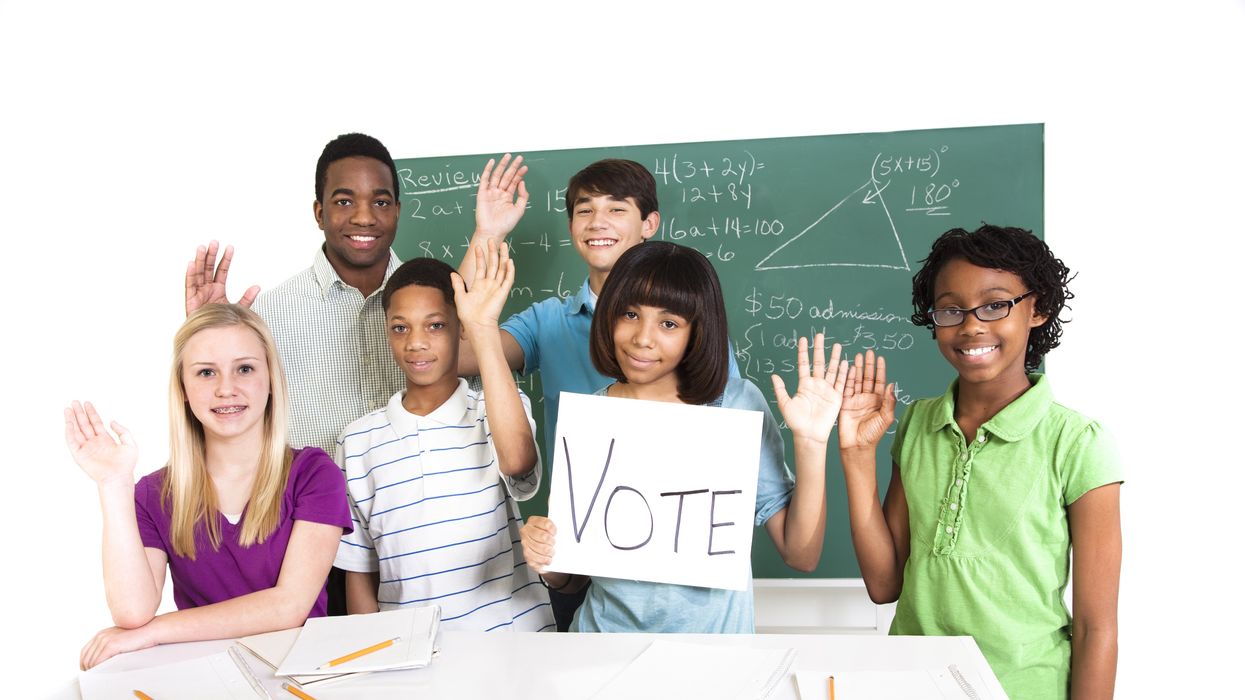Frazier is an assistant professor at the Crump College of Law at St. Thomas University. Starting this summer, he will serve as a Tarbell fellow.
Imagine it’s the late 18th century. Now picture an ambitious group of parents — let’s call them the Founding Parents — gathering to form a middle school with a unique system of government. Unlike any school before it, students will run the show ... with some caveats.
The Founding Parents don’t think all students have the requisite motives and proper incentives to meaningfully participate in day-to-day governance. That’s why they decide to limit the right to vote and to serve on the Student Council to honor roll students — those with GPAs over a 3.5. The Founding Parents reason that these students have the most to lose if the school is run poorly, which means they will do their utmost to protect its reputation. Because the students left out of the governing process continue to attend school, the Founders assume they’re fine with this arrangement and trust their honor roll colleagues to make sound decisions.
Importantly, the Founding Parents allow the Student Council to dictate when, how and where voting will take place. Big fans of their morning caffeine fix, the council members opt to hold the election a mile away from campus at a coffee shop. And, even bigger fans of showing off their acumen, the council members develop a time-intensive and text-heavy process for casting votes.
Fast forward some 200 years. The school has expanded in size and scope — it has more students overall and now spans K-8. Over that time, the government has also changed — at least on paper. Younger students tired of the Student Council favoring the interests of their more senior classmates successfully campaigned to receive the right to vote. A similar protest by students struggling in the classroom also led to an expansion of the electorate.
The composition of the Student Council, though, more or less has remained the same — honor roll students from upper grades tend to run for and win each and every office. Same goes for the time, place and manner of the election — despite younger students still working on their literacy and having a much harder time getting to the coffee spot to vote, the council insists on sticking with tradition. Other proposed governance reforms to diversify the Student Council or increase voter participation are usually dismissed as being unaligned with the vision of the Founding Parents or as infringing on the rights of the honor roll students who claim they have earned a disproportionate sway over the direction of the school.
After decades of this status quo playing out, a new class of kindergarteners arrives. Less concerned about fidelity to Founding Parents whom they never met and less inclined to defer to honor roll students, these new kids ask a simple question: “What’s the point of voting?”
One answer is legitimacy. The Honor Roll students explain that because every student has the option to vote, there’s a stronger basis than mere attendance to conclude that all students have consented to the form of government and its edicts. The youngsters aren’t convinced. If legitimacy is the aim, then shouldn’t voting be one of many informal and formal ways for the students to interact with their government? After all, if elections only occur once a school year and some students do not even vote, what do these contests really say about the authority of the Student Council?
Another answer is improved reasoning. Supposedly elections lead to better decision-making by introducing more perspectives and interests into the process. The youngsters point out that the current process will never achieve that goal — voting is unnecessarily burdensome (it’s hard to walk a mile as a kindergartner), unduly complex (there’s plenty of technology that could increase voter understanding of the issues), and undemocratically binary (there’s not power to voting if you’re selecting between bad options that were determined without your input). If the Council and its supporters truly aimed for more thoughtful decision-making, then they would consider mandatory universal voting, more investment and access to civic programming, and making election day a holiday.
The final answer is representativeness. The Council argues that voting being available to all increases the odds of officials and policies reflecting the full scope of student backgrounds and interests. The youngsters quickly counter that there is a difference in the right to vote being available versus being exercised. Differences in the exercise of the right to vote undermines the representativeness sought by the council, they argue.. Additionally, the youngsters flag that there are easily implementable solutions that have been left on the table — students could have the option to assign their voting power to a classmate they trust (proxy voting) or students who fail to vote or otherwise opt out could have their voting power tallied as if they had voted in the same way as the typical member in their grade (a version of pro rata voting).
The upshot is that voting is not living up to any of its theoretical aims — both at this hypothetical school and in our actual democracy. If voting confers legitimacy, then let’s make elections more meaningful and regular. If voting leads to improved reasoning, then let’s amplify voter education and outreach. If voting improves representativeness, then let’s make it easier for voters to participate in elections and run for office.




















Trump & Hegseth gave Mark Kelly a huge 2028 gift